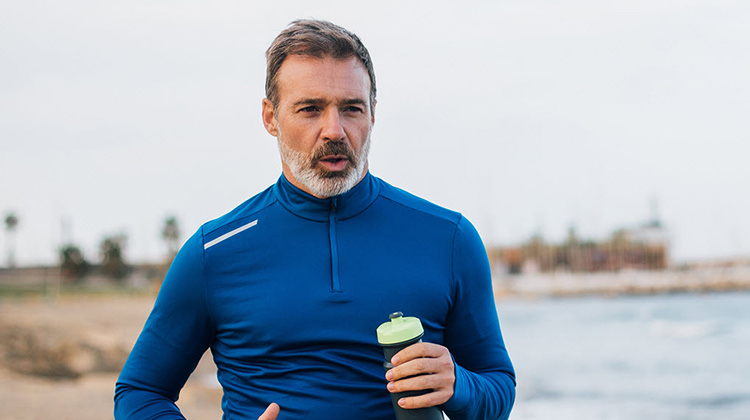By Bob Yirka
A team of medical researchers from Montefiore Medical Center and Albert Einstein College of Medicine in New York has found that mortality rates are higher for transplant patients receiving a new heart from a person infected with the SARS-CoV-2 virus than from those not infected. In their study, reported in Journal of the American College of Cardiology, the group analyzed data in the United Network for Organ Sharing (UNOS) database related to COVID-19. Read more in Medical Xpress.
Farewell, my kidney: Why the body may reject a lifesaving organ
By Gabriel Spitzer, Emily Kwong, Rebecca Ramirez, Liz Metzger
In February 2021, pandemic restrictions were just starting to ease in Hawaii, and Leila Mirhaydari was finally able to see her kidney doctor. This was a huge relief after being unable to get in-person health care for so long. But Leila was also anxious: Transplanted organs need diligent care, and Leila had been looking after her donated kidney all on her own for a year. So a lot was riding on that first batch of lab results. Read or listen the to the full story on NPR.
A heart was flown from Alaska to Boston, breaking a transplant record. Here’s how it was done.
By Adrianna Rodriguez
Dr. Joseph Rubelowsky felt as if he had just robbed a bank.
Still in his scrubs, he boarded the Falcon 900 jet, sat down and glanced over at the white cooling contraption that held the day’s loot. Strapped to the aircraft floor, it looked like a normal carry-on suitcase. Read the full story in USA Today.
Simplifying Diagnosis of Rejection After Kidney Transplant
By Nancy A. Melville
An automated system for the diagnosis of rejection after kidney transplant simplifies the assessment of increasingly complex criteria, significantly reducing the common occurrence of misclassification and potentially improving outcomes, according to new research.
“To date, no study in transplantation and other medical fields has developed and validated an automated multimodal disease classification,” report the French authors in their article published online May 4 in Nature Medicine.
Read more in Medscape.
10 Tips to Maintain Long-Term Health After a Kidney Transplant
One of the most important responsibilities you will have after getting your kidney transplant is following a prescribed and complex medication regimen.
Taking immunosuppressant (anti-rejection) medications will be required for the rest of your life. Read the full article on CareDx.com.
Prairie Doc Perspective: The Gift Of Kidney Donation
By Jill Cruse, DO
The first successful organ transplant was a kidney transplant in 1954. The donor was the identical twin of the recipient. The new kidney worked for 11 months. This was long before any anti-rejection medications were available. Cyclosporine, the first anti-rejection medication, was approved for use in 1983. The use of anti-rejection medications has significantly increased how long transplanted organs will function.
A transplanted kidney from a living donor will last on average 12-20 years. A kidney from a decease donor lasts 8-12 years on average. Read more in the Alliance Times-Herald.
Most health care facilities have no plans to discontinue universal masking, survey shows
By Caitlyn Stulpin
A survey assessing universal masking showed nearly all facilities represented planned to continue doing so, with the most common reasons being prevention of respiratory viruses and limiting the impact on staff. Read the full story in Healio.
Examining the Impact of Donor, Recipient Characteristics on Lung Transplant Mortality
By Giuliana Grossi
Results show race and ethnicity were significant factors in posttransplant outcomes highlighting the need for a multifaceted approach to addressing disparities in organ transplant outcomes.
A recent study found that there are significant differences in organ transplant outcomes based on race and ethnicity, while socioeconomic status and region weren’t contributors to most of the observed differences in posttransplant outcomes.1
Read the full story in HCP Live.
Resiliency Starts With High-Reliability Healthcare Systems
— Individual team member resilience will follow
By Tejal Gandhi, MD, MPH
Organizations and broader society often emphasize individual resilience in the workplace. We saw this on display among healthcare workforces throughout the COVID-19 pandemic, as individuals on the front lines were celebrated for their resilience. While their hard work deserved every bit of the recognition it received, it contributed to professional burnout. Last year, leaders from the Centers for Medicare & Medicaid Services and the CDC identified an urgent need for resilient healthcare systems and emphasized how companies can devote attention to resilience as an organization rather than focusing solely on individual resilience, albeit equally important.
Read the full article in MedPage Today.
Be thankful for a donor kidney, hopeful for others
By Kevin Longino
I know what it is like to experience kidney failure and, thankfully, I am one of the fortunate few to receive a kidney transplant.
As the CEO of the National Kidney Foundation, I lead with a sense of urgency because I know how challenging life can be for patients living on dialysis and waiting to get their life back.
Read the full article in Healio.








